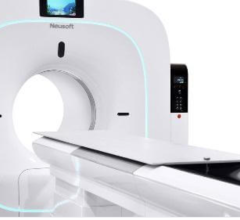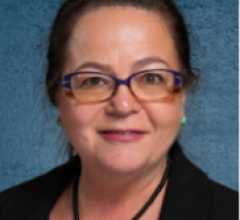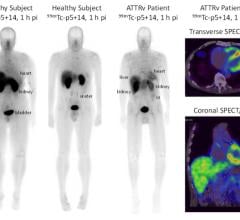
April 2, 2025 — Patients for Safer Nuclear Medicine (PSNM), a coalition of 30 non-profit organizations advocating on behalf of patients nationwide, today praised the reintroduction of a federal bipartisan bill intended to protect patients undergoing nuclear medicine procedures.
The Nuclear Medicine Clarification Act of 2025 (H.R. 2541) would close a regulatory loophole that has existed since 1980 that exempts clinicians from having to report mistakes during nuclear medicine procedures used to diagnose cancer and cardiovascular disease. The bill was introduced by Representative Don Davis (D-NC), and original cosponsors Morgan Griffith (R-VA), and Ben Cline (R-VA).
Every year in the U.S., medical professionals administer radioactive drugs nearly 30 million times as part of PET and SPECT procedures to diagnose cancer, heart and brain diseases, and more. These procedures produce diagnostic images to help clinicians assess the disease and to determine the optimal course of treatment. In addition, for some cancer patients, there are now radioactive drugs that are therapeutic and can treat tumors. Because these drugs are tagged with medical isotopes, the U.S. Nuclear Regulatory Commission (NRC) is responsible for their proper use and for ensuring that mistakes that accidentally expose patients to high radiation doses be reported to the NRC.
One such mistake is when radioactive drugs are accidentally injected or extravasated into the patient’s tissue instead of a vein. Large extravasations can lead to high radiation doses that can cause pain and damage to underlying tissue, visible skin damage, and increased risk of cancer. Additionally, and perhaps even more importantly, extravasations can also negatively impact the images used to guide care or in the case of the expensive therapeutic drugs, compromise the delivery of therapy to patients.
“Shockingly, an NRC policy exempts clinicians from currently reporting an extravasation to the NRC. Even worse, there is no transparency. There is no requirement to tell the patient in question that he or she has been extravasated,” notes Mary Ajango, Director of Advocacy for Young Survival Coalition, and spokesperson for PSNM. “If radiation is inadvertently spilled onto a patient, that incident must be reported to NRC – yet if it is accidentally injected into a patient’s tissue, no report is required. This policy makes zero sense and opens the door to lasting patient harm.”
The Nuclear Medicine Clarification Act would close the loophole by requiring large extravasations be reported to the NRC as medical events, just like any other reportable event. It is estimated that 500,000 large extravasations merit reporting to the NRC each year. Evidence suggests that the transparency that comes with reporting could quickly reduce the number of large extravasations to fewer than 3,000 annually.
“To date, the NRC has failed to act in the best interests of patients. Legislation appears to be necessary to protect patients and inform them when mistakes happen,” Ajango adds.
Although the NRC accepted a petition for rulemaking to eliminate the incorrect exemption for reporting extravasations in December 2022, their proposed rule published in August 2024 will not fix the problem. Rather than simply removing the incorrect reporting exemption, NRC’s medical staff proposed creating a new reporting process just for extravasations. The new process creates subjective criteria rather than using the risk-informed objective criteria used for all other accidental exposures. The new criteria allow clinicians responsible for the accidental exposure to determine if they should report or not based on their subjective opinion. These same clinicians have actively lobbied the NRC to continue to exempt extravasations from any reporting.
PSNM is leading the effort to change NRC policy, arguing that their proposed rule fails to encourage clinicians to improve injection quality. The National Institutes of Health (NIH) is also on the record in opposition to the NRC’s subjective reporting proposal.
For more information, please visit www.safernuclearmedicine.org


 July 30, 2024
July 30, 2024 








